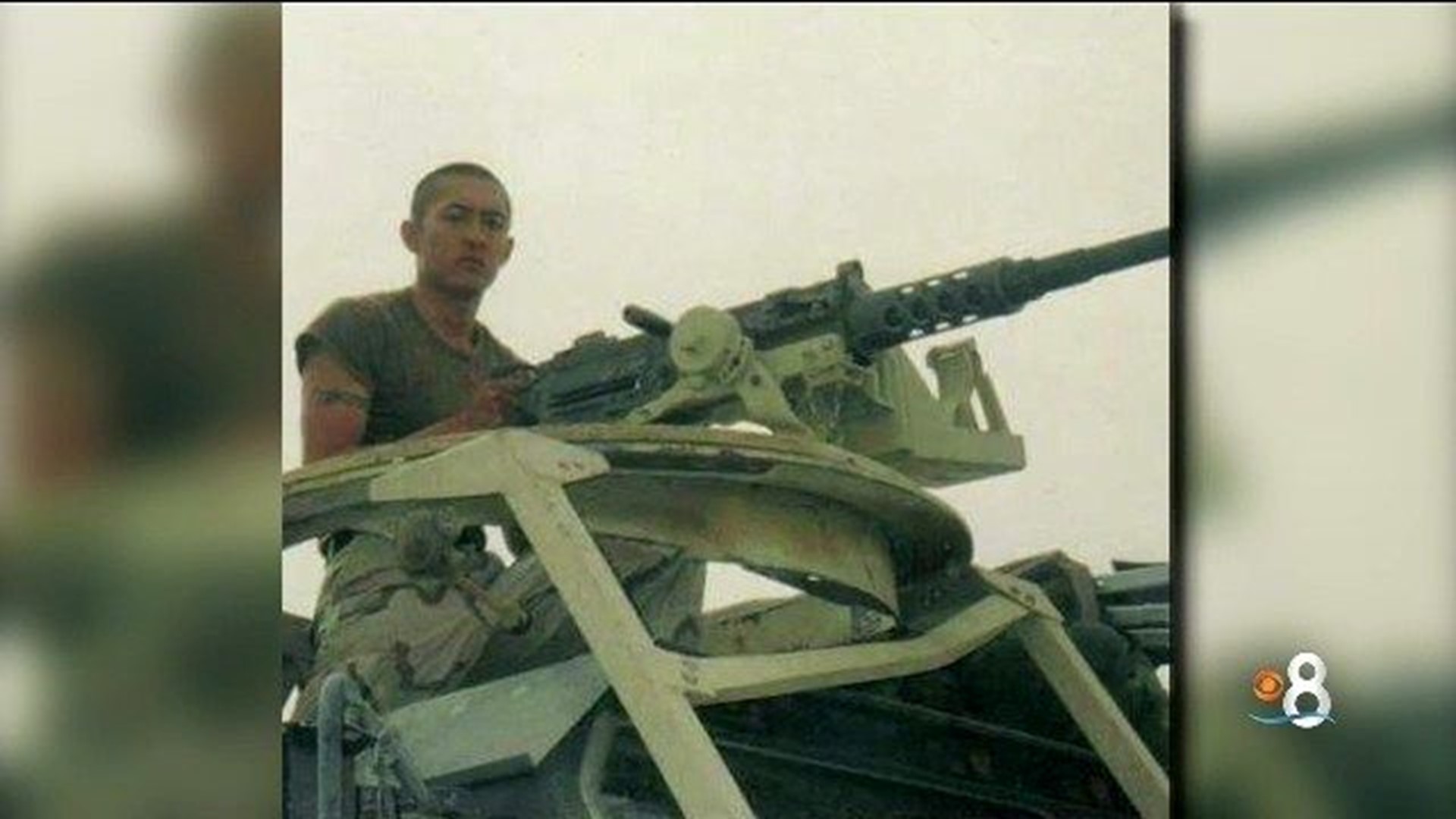SAN DIEGO (CBS 8) - San Diego is a military town and many men and women who have served our country become our neighbors and friends - but there's a growing problem as they make their transition back to civilian life.
Experts say 30 percent of combat veterans suffer from posttraumatic stress disorder (PTSD), often becoming addicted to drugs and sometimes causing violence in our communities.
CBS News 8's Gene Kang interviewed Pemberton Tran for this report.
Tran is an Army combat veteran who served in Iraq in 2003 and 2004. At first glance Tran is a funny, kind and passionate man. There are no outward signs of the struggles he keeps to overcome a dark past.
"When I went to war and came back everything had been shattered. My life was forever altered," said Tran.
The 32-year-old suffers from posttraumatic stress disorder. It's something most people have heard about but may not really understand.
Tran lived on the streets of San Diego after serving in the military.
He has been asked many questions about his time in the Middle East - most often insensitive ones.
"Have you killed anybody? Have you seen anything gnarly?" Tran said.
He isolated himself from family and friends. He self-medicated with alcohol and drugs and turned to a life of crime. He was also suicidal. Tran's downward spiral kept on for more than a decade.
"I'm trying to cope with my PTSD with the drugs ... trying to numb it because I had nightmares, night sweats, anger, anxiety," he said.
Those who suffer from PTSD and other mental disorders may not act out but two incidents recently made headlines in local news.
In February, police arrested 31-year-old Jon Sheddy, a former U.S. Navy sailor. Sheddy went on a rampage in San Diego. Police say he was involved in a carjacking and an armed robbery at a gas station. He also shot out his neighbors' car windows in Mission Hills and then at windows of a school at 2 in the morning.
His wife reportedly told officers he may suffer from PTSD.
In March, a SWAT team went in after sheriff's deputies say a former military man barricaded himself in his home, holding his child and two foreign exchange students hostage. It ended peacefully but put the community on edge. It was another case of a veteran possibly suffering from PTSD.
The U.S. Department of Veterans Affairs says the nation and local communities are facing a growing problem. Since 2001, more than two million combat vets have returned from Iraq and Afghanistan and nearly 1 in 3 suffer from PTSD. A high concentration of them are in San Diego as most become jobless and homeless, often abusing drugs and alcohol.
"We find that this younger generation is probably losing their support system faster than the Vietnam generation," Marilyn Cornell, Clinical Director at Veterans Village of San Diego says.
Veterans Village of San Diego, founded in 1981, helps more than 2,000 local homeless veterans every year who have mental health and substance abuse problems.
Cornell says there's a stigma attached to PTSD and our veterans desperately need help.
"They were the nation's best. We sent them over, our best and brightest, to do the job," she says.
"We really want to make sure they're restored as best as they can. To move forward and have a self-sustaining, self-fulfilling life," she says.
(To view the video on YouTube, Click Here)
Last year, there were 32,000 calls of mentally ill, violent or suicidal people in the county, which also includes cases of PTSD.
Lt. Christopher May is the mental health liaison for the San Diego County Sheriff's Department and runs the Psychiatric Emergency Response Team or 'PERT'.
"Our deputies and police officers in the county deal with military folks and veterans all the time," Lt. May says. Those who get in trouble with the law or are in need of help are referred to the VA hospital or other facilities for medication and treatment. Some are sent to vet court.
After graduating from a program at the Veterans Village of San Diego, Tran is now sober and starting a new life.
"Thank God I'm still standing because I have a lot of stuff ahead of me. I can see a future," Tran said.
If you'd like to volunteer with Veterans Village of San Diego or want to learn more about other programs they offer, CLICK HERE.

